This article is a reprint from Johns Hopkins medicine. See their website at: https://www.hopkinsmedicine.org/
New information is emerging every day on how the new coronavirus spreads and the best ways to protect against COVID-19. The most effective protections include washing your hands frequently with soap and water and practicing physical distancing. However, wearing cloth face masks or coverings in public when physical distancing can’t be observed does offer protection against spread of COVID-19.
Lisa Maragakis, M.D., M.P.H., an expert in infection prevention, provides guidance based on Johns Hopkins Medicine policy.
Should I wear a face mask or covering for coronavirus protection?
Yes, if you are in a public place where you will encounter other people, you should wear a mask.
How do you properly wear a face mask?
Your mask should cover your face from the bridge of your nose to under your chin. It should be loose fitting but still secure enough to stay in place. Make sure you can talk with your mask on and that it doesn’t irritate you, so you are not tempted to touch it or pull it out of place, which could put you at risk from touching your face or limit its effectiveness.
/
Can a face mask prevent coronavirus from spreading?
Face masks help prevent the spread of COVID-19. Because it’s possible to have coronavirus without showing symptoms, it is best to wear a face covering even if you think you are healthy. A mask helps contain small droplets that come out of your mouth and/or nose when you talk, sneeze or cough. If you have COVID-19 and are not showing symptoms, a face mask reduces your chance of spreading the infection to others. If you are healthy, a mask may protect you from larger droplets from people around you.
Different levels of masks are appropriate for different situations and needs. At Johns Hopkins Medicine, we currently require everyone entering our facilities to wear a mask, with the exception of children under 2.
Here is how masks help prevent spread of COVID-19.
Masks for the Public
According to the CDC, recent studies indicate a significant portion of people who have COVID-19 don’t show symptoms, and the virus can spread before they realize they are sick. This research — combined with the fact that the coronavirus can spread through close proximity to others, often by speaking, coughing or sneezing — led to their recommendation for the general public to wear cloth masks in public, especially in situations where physical distancing may be difficult, such as grocery stores or on public transportation, and in areas where there is a significant amount of community transmission.
Some states now require face masks in retail stores and on public transportation. In Maryland, face masks or coverings have been required in retail stores and on public transportation since April 18.
People with risk factors for severe consequences of COVID-19: This would include people over age 65 and those living with heart disease, diabetes, obesity, chronic lung disease, immunity problems or cancer.
While physical distancing and frequent handwashing are the best ways to protect against COVID-19, you should check with your doctor about the best option for you. Johns Hopkins Medicine offers these directions for a homemade mask and child-size masks, intended for use in non-patient care settings.
Masks for COVID-19 Patients and Their Caregivers
In order to protect from the spread of droplets, a surgical or cloth mask should be worn in a home setting by those with COVID-19 when they are around others. If the person who is ill is unable to wear a mask, their caregiver should wear one. Patients being treated in hospital settings will follow hospital guidelines.
Many websites offer guidelines on how to make a cloth mask. Johns Hopkins Medicine offers these directions for a homemade mask and child size masks for non-patient care settings.
Masks and Other Protective Equipment for Health Care Workers
Health care workers testing and treating patients for COVID-19: Anyone interacting directly with people ill or suspected to be ill with COVID-19 need professional respirators, such as N95 respirators, which are designed for medical use. N95 respirators fit the face snugly and filter the air to stop respiratory droplets from getting through or around the device. In addition, our care teams treating patients with COVID-19 wear added protective gear, including face shields that protect the eyes, nose and mouth from contamination from respiratory droplets, along with masks or respirators.
Health care workers in patient areas, but not working directly with COVID-19 patients: Procedural, surgical and cloth face masks are being used to help guard against the possible spread of COVID-19. These masks don’t have a tight seal and are made of different types of materials.
Similar to influenza and other respiratory viruses, the virus that causes COVID-19 appears to be transmitted primarily through large respiratory droplets. Surgical or procedural masks provide protection against respiratory droplet spread.
While cloth masks are not medical-grade, they may be helpful in non-patient settings to contain coughs and to remind people to not touch their face, but they are not suitable for providing medical care to patients.
Read more about Johns Hopkins Medicine’s use of face masks in our care facilities.
Coronavirus (COVID-19) Self-Checker
Check symptoms. Protect yourself. Get information.Check Now
What are the different types of masks?
Professional Respirators
Called N95 respirators, these medical devices are made to prevent exposure to tiny droplets that can remain suspended in the air. Health care workers who wear them undergo a fit-test to find the right make, model and size to ensure a tight seal. The N95 respirators are currently in very short supply and should be reserved for health care providers and first responders.
Procedural and Surgical Masks
These are loose-fitting masks designed to cover the mouth and nose.
Do surgical masks protect against coronavirus?
Although they are not close fitting, blue, disposable masks are fluid resistant and provide some protection against larger respiratory droplets from coughs and sneezes. Primarily, they prevent the wearer from spreading infectious droplets to others. Like N95 respirators, these masks are used by health care workers whose safety depends on an adequate supply. They cannot be washed.
Cloth or Paper Masks
According to the CDC, these masks may help slow the spread of COVID-19, and help keep people who may unknowingly have the virus from transmitting it to others.
Can I make my own cloth mask?
Yes: Some people are making masks out of cotton or linen or even t-shirts or bandanas. There are several patterns available, including this one from Johns Hopkins Medicine and another for child size masks, for use in non-patient care settings. Cloth masks can and should be washed daily.
What items in my closet can I use to create a face covering or mask?
- Bandannas, scarves, hand towels, or any items made of cotton or linen are a good place to start.
- Thicker, more densely woven cotton fabrics are best, such as quilting cotton or cotton sheets.
- Stretchy knits aren’t ideal.
- Hold the fabric up to the light: The fewer tiny holes you can see, the better it will work to filter droplets.
- Overall, making a good mask involves finding a balance: You want fabric that doesn’t allow droplets to pass through while ensuring you can still breathe properly with your mask in place.
Can I create my own filter?
Some people buy or create masks with a pocket inside to hold a filter, such as a coffee filter. When using other materials to make your own filter, such as unused vacuum cleaner bags, HEPA furnace filters, HVAC anti-allergy filters or other air filters, make sure you sandwich the filter between at least two layers of fabric to cut down on the risk of inhaling potentially harmful fibers from these materials.
There are not yet conclusive data on whether or not filters provide added protection, but studies are underway. Please make sure that you can breathe easily when wearing the mask, and do not use a filter if it makes you feel short of breath.
What should I be looking for when buying a mask?
Look for masks made with at least 2 layers of fabric. It should cover your nose and mouth without large gaps. The mask should have ear loops or ties so you can adjust it. For people who wear glasses, look for a mask with a bendable border at the top so you can mold the mask to fit the bridge of your nose and prevent your glasses from fogging. Professional masks should be reserved for health care workers on the front lines caring for patients.
What is a face shield?
A face shield is a piece of rigid, clear plastic attached to a headband. The plastic piece covers the face, extending to below your chin.
You might have seen face shields on some of your health care providers, even before the COVID-19 pandemic. Dentists and dental hygienists sometimes wear them when they are working close to their patients’ mouths. Doctors, nurses and technologists might use face shields, together with face masks, when performing certain procedures that could propel blood or other substances into the air.
At Johns Hopkins, care teams treating COVID-19 patients wear face shields over N95 respirators for additional protection.
Should I wear a face shield?
If you maintain physical distancing of at least 6 feet between you and other people when in public places, you will not need a face shield. Wearing a mask will contain your respiratory droplets. Avoid close contact with anyone who is not wearing a mask. If you must be in close contact with someone who is not wearing a mask, a face shield may provide some additional protection.
Can I get a face mask exemption or waiver?
No, you cannot get a waiver or exemption from wearing a face mask. Recently, fake cards and flyers, claiming that the bearer is exempt from mask-wearing regulations, have shown up in some areas. They claim that the person carrying them has a physical or mental condition covered by the Americans with Disabilities Act (ADA) that makes them unable to wear a face mask or covering.
The United States Department of Justice has issued a statement about these fake mask exemptions, explaining that these cards and flyers are fraudulent.
Remember the best protections
In times of a pandemic, it’s understandable to want to do everything possible to protect yourself from becoming ill. While wearing a mask will prevent you from spreading COVID-19 if you have it and don’t know it, physical distancing and frequent, thorough handwashing are still the best ways to avoid getting COVID-19.
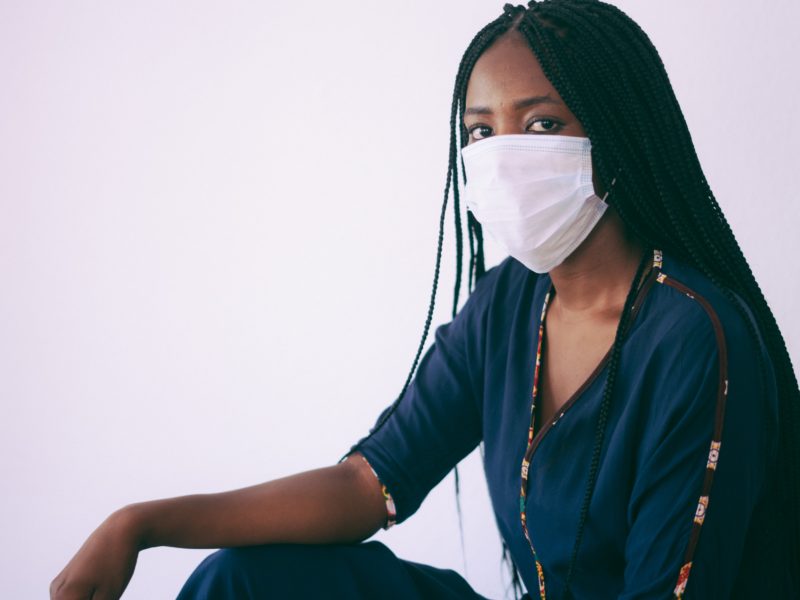

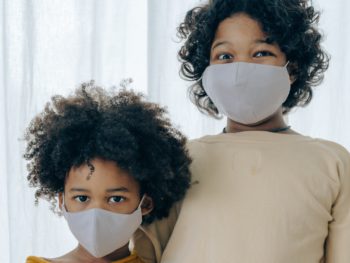
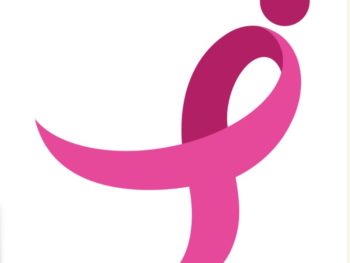
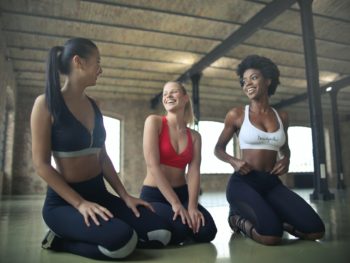
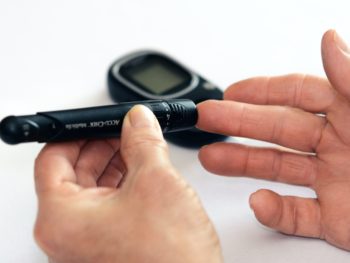

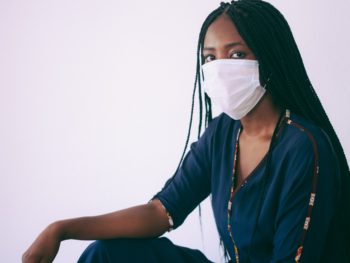


 What You Need to Know About Migraine and Botox
What You Need to Know About Migraine and Botox